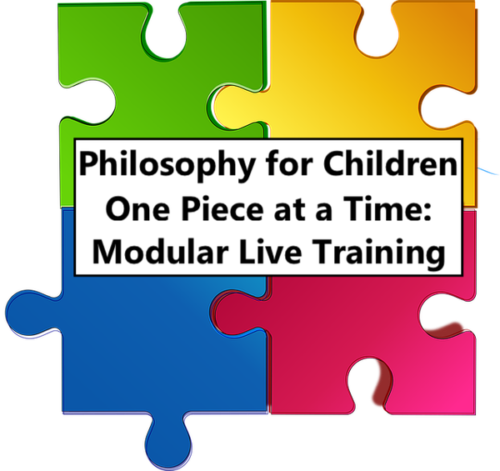When is a Question not a Question?
This is an interesting question for exploring meaning and language, in particular the difference between the literal meaning of what is said and how it is used or understood. Rhetorical questions, sarcastic questions, asking oneself a question are all possible answers. As, often, are utterances finishing with “isn’t it”, “aren’t they” etc. What about questions that are used to express disapproval (“Was that a good choice?”), frustration (Isn’t that typical?”) or an order (“Could I have the bill, please?).
Are those questions that are not questions? Who knows? Regardless, “When is a question not a question?” is a good example of a “when” question that invites examples, categories and criteria. Those are great because it’s quite accessible to think of an example, but thinking of categories and criteria is a good stretch for critical thinking and precise expression.
These rarely fail to get conversation going and provoke flights of speculation, counterexamples and a good degree of head-scratching. They’re great no matter where you are. They can inject some thinking to kitchen-table conversations, can quieten a boisterous classroom, or just give you something different to talk about on Zoom.
How about these:
- When does success in a sport involve playing as little of that sport as possible?
- When should something people want be recognized as a human right?
- When are equal shares unfair?
And of course, any “when” question always invites the rejection of the assumption it contains with a well-reasoned “Never!”
Catch-Up Premium
While I don’t suppose UK state schools will be feeling flushed with the government’s largesse, one MAT has already booked up sets of Sticky Questions and a series of twilight sessions for their staff. Helping children, especially the youngest, reconnect socially and intellectually through high quality classroom dialogue is going to be a really important part of the recovery. I have about 20 after-school staff meeting slots left this side of the summer for online training; people are also booking up face-to-face events for June and July and INSET in September. Get in touch if you might be interested in making this part of your plan, and we can arrange a time for a 20-minute Zoom meet to discuss your school’s plans and how we can help.

Philosophy for Children One Piece at a Time: Modular Live Training
Individual teachers are looking to develop their skills so they can practice and lead on P4C in their schools; but both school budgets and teachers’ time are exceptionally stretched, so intensive courses face-to-face or online have less appeal than they might. So to allow people from around the world to access top-quality training in philosophy for children in a more manageable, paced way, we’ve decided to modularize our open training and make it available as an on-demand course.
Tuesday 16th March, 4.30 p.m. will be the first session 1-hour Zoom session of the 12-module course. Sessions will be recorded, edited and added to the resource page for the modules to form the core of an on-demand course. Those completing all twelve modules and sharing their practice in the resource forum accompanying the course will be eligible to claim a Level 1 Philosophy Circles Practitioner certificate.
Cost will be £19+VAT per module, or £199+VAT for the entire course of twelve. You can see the full list of dates (spread between March and June) and modules at www.thephilosophyman.com/shop . You can pick and choose individual modules of interest as well.
The course mostly follows the structure of the Philosophy Circles minibook, which you’ll receive when you sign up for your first module (whichever one it is!). Here is some info on the first three modules and titles of the rest.
March 16th – Introduction to Philosophy CIrclesA fast-paced, practical introduction to the core principles of Philosophy Circles and the pedagogical philosophy underpinning them.
March 23rd – The QuestionariumA deep dive into three aspects of questions: Structures that make for philosophically fruitful questions, the Domains where philosophical tradition and what is engaging for children overlap, and Coaching questions that allow light-touch facilitation.
March 30th – Starting PositionsThis session is about exercising our question-creation muscles with lots of iterations of one of the simplest ways to run a philosophical enquiry. We’ll also explore some of the variations of this method, and the differences between debate and discussion and how one can feed the other.
April 20th – Stimuli (forms, what to look for, creating your own)
April 27th – Going into Orbit (teacher status, talk structures)
May 4th – Community Builders (warm-ups/warm-downs that develop particular skills)
May 11th – Philosophy in role (making children characters in the story, or being in character yourself)
May 18th – Use their Questions (how to create questions organically out fo children’s responses)
May 25th – Thinkers Games (how to make thinking physical)
June 8th – Philosophy Topics (how to identify questions within the curriculum)
June 15th – Scribe, don’t script (listening better, and use of the Discussion Dashboard)
June 22nd – Planting Cats: School-wide implementation